Select a category
nigerianews
profile/3696FB_IMG_166154600052001842.jpg
Ndoma
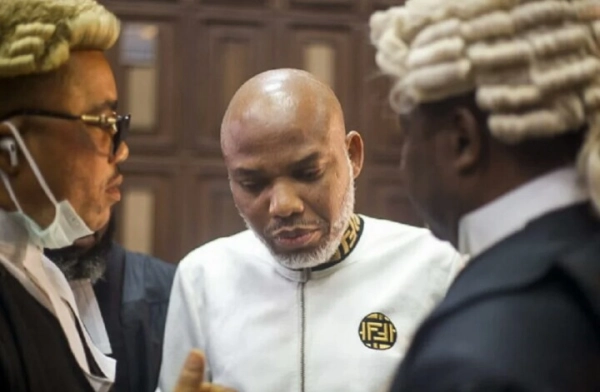
NEWS2023: Knocks, Controversies Over Continuous Detention Of Nnamdi Kanu
~0.6 mins read
NEWS2023: Knocks, controversie
President Muhammadu Buhari has been slammed over the issues surrounding the leader of the Indigenous People of Biafra, IPOB, Mazi Nnamdi Kanu and his continued detention by the Federal Government.
Despite the ruling by the Court Appeal for the IPOB leader to be released, the Buhari administration stood its ground. It later approached the same court and got a stay of execution.
The Court of Appeal in Abuja had held that the Federal Government breached all local and international laws in the forceful rendition of Kanu to Nigeria, thereby making the terrorism charges against him incompetent and unlawful.
But the Attorney General of the Federation, AGF, Abubakar Malami had vowed that Kanu would not be released despite the court ruling, insisting that the Federal Government would pursue other charges against Kanu.
profile/5683FB_IMG_16533107021641748.jpg
News_Naija
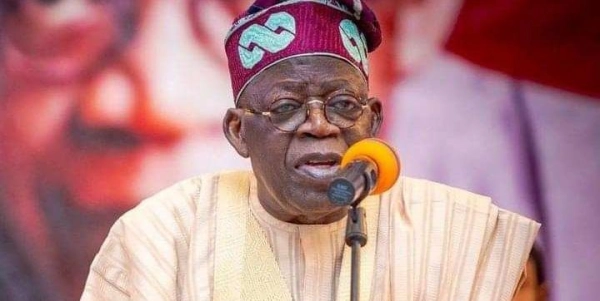
”Flooding Will Be A Thing Of The Past When I Get To Office.”–Tinubu Assures Nigeria
~0.6 mins read
APC 2023 candidate has promised to quick end the issue of flooding if he wins the 2023 elections.
Speaking on his plans he said;
He said
Flooding is a big problem in Kogi perhaps because of its strategic location as the confluence between Rivers Niger and Benue. “This state has particularly been ravaged this year by flooding. You have lost precious lives, you have lost properties. You have lost farmlands. Part of the reasons we have put together this special walk for Tinubu/Shettima is to draw attention to this flooding problem.
“I want to tell you today that flooding will be a thing of the past when we get to the office. We will work with the Kogi State Government to devise a permanent solution to this problem. The blessings of God exemplified in torrential rain should not be a curse on us.
profile/8981IMG_20220916_122941_195.jpg.webp
Remy

Lady Narrates How A Prophetess Destroyed Her Family After Prophesying That Her Father Would Use Her For Rituals.
~1.6 mins read
A young Nigerian lady, simply identified as Vanexxa, has recounted how a prophetess destroyed her family with a false prophecy.
The lady in a heartbreaking video that’s making the rounds online said trouble started in their home when a prophet gave a false prophecy about her father using her for rituals.
Vanexxa recounted her horrific childhood experience, saying that as a seven-year-old girl it was traumatizing to see her parents fight every day and never seem to agree on anything.
She said most of the time, her father would leave the house for months without anyone knowing his whereabouts after tumultuous fights with her mother.
She said that amid the unrest in their home, her mother took her to a prophet to pray that her father would change for the better. The prophet then told her that her father would use her for ritual.
To make matters worse, she fell ill shortly afterward, and her mother concluded that her father was trying to kill her for ritual. However, at the hospital, it was confirmed she had food poisoning.
“My childhood was a mess. My dad and my mom will fight and my dad will leave the house for months. My mum will beg me to call my dad and tell him that I’ve not eaten and that he should come back home because we need him.
“My dad will come back home and my parents will fight again. My mum then took my dad to a church for deliverance. One pastor prophesized that my dad will use me for blood money. After this my parents fought again and I begged my dad to come back home. After begging my dad one fateful day, he bought me suya while returning home.
“I ate it and the next day, my tummy got swollen and I was purging. I was taken to the hospital and the doctor said it was food poisoning. My mum quickly remembered what the pastor said and concluded that my dad wanted to kill me and that the prophecy is true. The doctor later explained that it was a natural ailment not spiritual and that my dad was innocent”.
Most men of God are destroying homes all in the name of prophecy.
Advertisement
profile/8055FB_IMG_15961823052589134.jpg
Gale2626
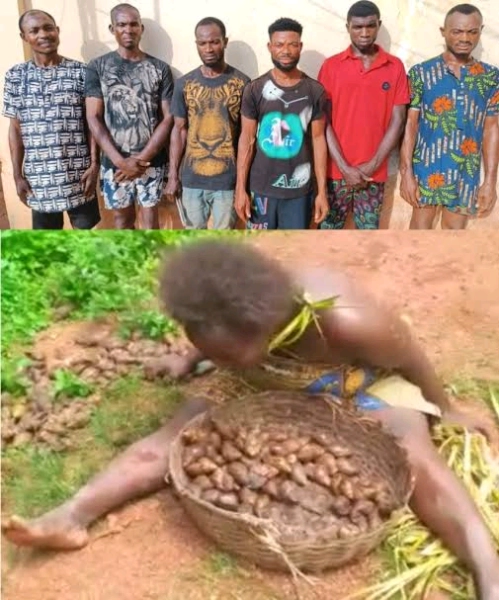 Woman stripped for picking snails
Woman stripped for picking snails Six Men Arrested For Assaulting And Stripping A Woman Naked In Enugu
~1.5 mins read
Police Arrest Six Men For Assaulting Woman In Enugu
KanyiDaily had reported how the woman was beaten to a stupor, stripped naked, and paraded by some men who accused her of desecrating their shrine by collecting snails at the sacred site.
In a statement on Friday, the command spokesman, DSP Daniel Ndukwe, said six male suspects were arrested after the Commissioner of Police in the state, CP Ahmed Ammani, ordered a full-scale investigation into the incident and prosecution of the culprits.
The statement reads, “The Commissioner of Police, Enugu State Command, CP Ahmed Ammani, fdc has ordered the State CID Enugu to conduct a full-scale investigation into the viral case of alleged stripping naked of a woman (names withheld) at Agunese, Afam-Mmaku in Awgu Local Government Area, by some youths of the community numbering over twenty (20), on 27/10/2022, over the allegation that she desecrated their shrine by picking snails therein.
“Consequently, six (6) male suspects have been arrested, including one Okoro Stan aged 46, alleged to have led others in perpetrating the act of beating and parading the said victim round the community. Others include: Jonathan Nwangene aged 43, Maduabuchi Madueke aged 34, Obioma Nwangene aged 39, Anikene Samuel aged 24 and Chukwuebuka Agu aged 32. In addition, frantic investigative efforts are ongoing to arrest others at large,” the statement read.
“Meanwhile, ongoing investigation into the case has shown that the suspects also beat up and caused bodily injuries on the victim’s husband and brother, when they attempted to stop them from carrying out the act.
“To this end, the Commissioner, while categorically condemning the said acts of torture, dehumanization and degradation of the person of the victim in contravention of extant laws, especially those bordering on her dignity and fundamental human rights, has further directed that the investigation be concluded within the shortest possible time and the culprits arraigned accordingly.”
“The CP, therefore, urges citizens of the State, particularly traditional rulers and other community leaders, to ensure that utmost caution is exercised when enforcing traditional or customary norms on their subjects, especially if doing so will lead to the contravention of the constitutionally enshrined fundamental rights of the person.”
Source:KanyiDaily
profile/3095FB_IMG_1521896499294.jpg
Mountainous
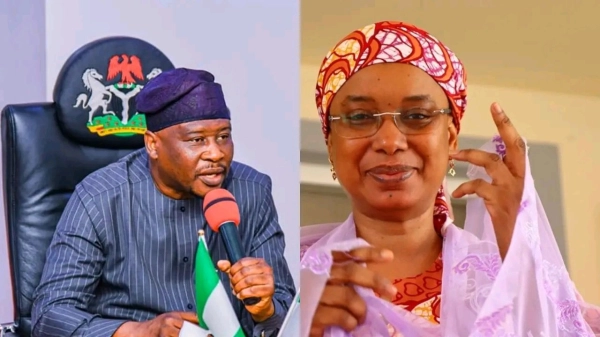
Governor Ahmadu Fintiri Of Adamawa State, This Morning Maintained The Lead In The Governorship Election After The Collat
~5.0 mins read
Governor Ahmadu Fintiri of Adamawa State, this morning maintained the lead in the governorship election after the collation of 10 out of the 20 local government areas where the supplementary election was held Saturday.
Fintiri had polled 421,524 votes in the March 18 governorship election against Senator Aishatu Dahiru Ahmed Binani’s 390,275. The Independent National Electoral Commission (INEC) had declared the March 18 election inconclusive and fixed Tuesday for the supplementary poll.
Yesterday’s election was held in a total of 69 polling units with 36,935 eligible voters. Results of 10 local government areas so far collated showed that Fintiri polled 4,292 while Binani got 3,128.
Aggregation of the supplementary results with the earlier results polled by the candidates showed that Fintiri is maintaining the lead with a total of 425,816 votes as against Binani’s 393,403.
The 10 local government areas where results have been so far declared by INEC are Demsa, Yola South, Yola North, Lamurde, Jada, Ganye, Song, Maiha, Hong and Shelleng.
The aggregate results from 10 out of the 20 local government areas so far collated showed that Fintiri is leading with a margin of 32,413 votes.
Around 1am today, the electoral body said the collation of the results would be concluded by 10am.
INEC had yesterday conducted supplementary elections in 2,660 polling units across 185 local government areas of 24 states.
The supplementary elections include the governorship for Adamawa and Kebbi states, senatorial and House of Representatives and state constituencies elections where they were previously suspended due to some reasons, including violence and situations where the margin between the winner and the first runner-up was less than the votes cancelled.
Collation resumes 11am today in Kebbi
Around 2am, INEC announced that collation of results for Kebbi governorship supplementary election would resume by 11am today.
Our correspondent reports that the collation earlier fixed for 11pm yesterday by the electoral body did not start at 1:08am. Returning officers from the local governments were still being expected.
Cases of vote-buying and ballot box snatching were reported in some polling units during the supplementary election in Kebbi State.
The election, which was conducted for governorship in 142 polling units of 20 local government areas of the state, one senatorial district in Kebbi North, two federal constituencies and eight state assembly constituencies recorded vote-buying from the two major political parties in the elections.
At the few polling units where elections were held in Birnin Kebbi Local Government Area, namely, Marafa, Ambursa, Kardi, Makera, Gawassu and Maurida/Karyo, cases of vote-buying were reported as party agents were seen distributing clothing and cash to voters, particularly women, to get their votes.
Party agents positioned themselves at obscure areas to distribute the clothing materials to the women at Kardi.
Also, at the Hisbah office polling unit, Marafa ward, Ubandoma/Takalau in old town area of Birnin Kebbi, some male voters told journalists that they were given a bag of fertilizer each and money to vote.
A woman who spoke to our correspondent at the polling unit said she and some of her friends were given wrappers and N7,000 by party agents.
Meanwhile, a yet to be identified man was shot dead by soldiers as he attempted to snatch a ballot box from INEC officials at polling unit 001, Bajida, Fakai Local Government Area of Kebbi South. The deceased was said to be a member of the proscribed Yansakai, a local volunteer vigilant group in the Zuru area of the state.
He was said to have intruded into the polling unit claiming to be a security agent and was shot while trying to collect gun from a soldier who was standing guard at the polling unit.
Doguwa wins 5th term, NNPP clinches Fagge
The majority leader in the House of Representatives, Alhassan Ado Doguwa, has been declared winner of the Doguwa and Tudunwada federal constituency.
The Returning Officer, Professor Sani Ibrahim, who announced the result at the just concluded supplementary elections held across eight wards in Tudunwada Local Government, said Doguwa, having scored the highest votes cast of 41,573, is therefore, returned elected.
His closest rival, Yushau Salisu of the New Nigeria People’s Party (NNPP) polled 34,831 votes.
APC wins senatorial seats in Yobe, Plateau
INEC has declared Senator Ibrahim Mohammed Bomai of the All Progressives Congress (APC) as winner of the Yobe South senatorial election.
Bomai scored 69,596 votes to defeat his closest rival, Halilu Mazagane of the Peoples Democratic Party (PDP) who polled 68,885 votes.
While declaring the result at the collation centre in the Federal College of Education (Technical), Potiskum, INEC’s Returning Officer for the election, Dr Abacha Meleni, said that Bomai, “having satisfied the requirements of the law, is declared winner and returned elected.”
In the same vein, INEC declared Diket Plang of the APC as winner of the Plateau Central senatorial seat.
Declaring the result in Pankshin, the headquarters of the Plateau Central senatorial zone, INEC’s Returning Officer, Dr Jima Lar, said Plang scored a total of 131,129 votes to emerge winner.
He said Plang’s closest challenger, Yohanna Gotom of the PDP came second with 127,022 votes, while Garba Pwul of the Labour Party came third with 36,510 votes.
NNPP’s candidate unseats APC’s Goro in Fagge
Meanwhile, the candidate of the NNPP, MB Shehu, a lawyer, was declared winner of the Fagge federal constituency, Kano, for the House of Representatives.
Shehu unseated the incumbent House of Representatives member, Aminu Sulaiman Goro of the APC, who is serving his third term.
Announcing the results, the Returning Officer, Professor Ibrahim Tajo Suraj, said Shehu polled 19, 024 votes, followed by the candidate of the Labour Party, Shuaibu Abubakar, who polled 12, 789 votes, while Aminu Sulaiman Goro of the APC came third with 8, 669 votes.
Ogun Speaker wins re-election
INEC has declared the Speaker of the Ogun State House of Assembly, Olakunle Oluomo, winner of the Ifo 1 constituency election.
The Returning Officer for Ifo state constituency 1, Prof Richard Shobayo, while declaring Oluomo as the winner, said he polled 7,546 votes to defeat his rival, Yusuf Ogundele of the PDP, who garnered 6,596.
EFCC arrests 12 in Kano, Katsina over vote-buying
The Economic and Financial Crimes Commission (EFCC) said it arrested 12 persons for alleged vote-buying during Saturday’s supplementary polls in Kano and Katsina states.
The Kano zonal commander of the commission, Faruk Dogondaji, told the News Agency of Nigeria in an interview that the suspects were arrested with N1.5 million cash in Kano and Katsina states.
He said 10 suspects were arrested in Doguwa Local Government Area of Kano State and two in Kankiya of Katsina State.
Dogondaji said the suspects were arrested while attempting to induce eligible voters with cash at some polling units.
He said the 10 suspects were apprehended with N1,357,500 in Doguwa, while the two suspects were arrested with N242,000 in Kankia Local Government Area.
profile/8302images3.jpeg.webp
Gistlegit
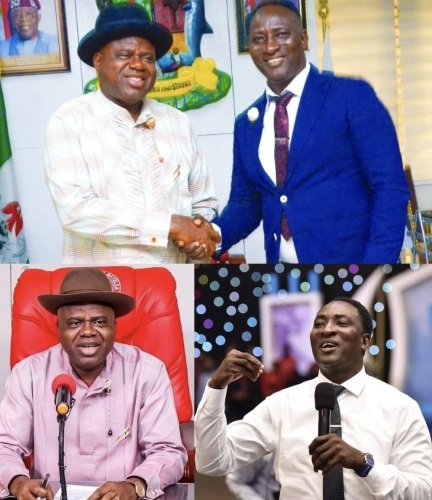
Breaking NEWS: Yenegoa International Stadium Packed As Worshipers Witness Unprecedented Spiritual Display Through Prophe
~1.0 mins read
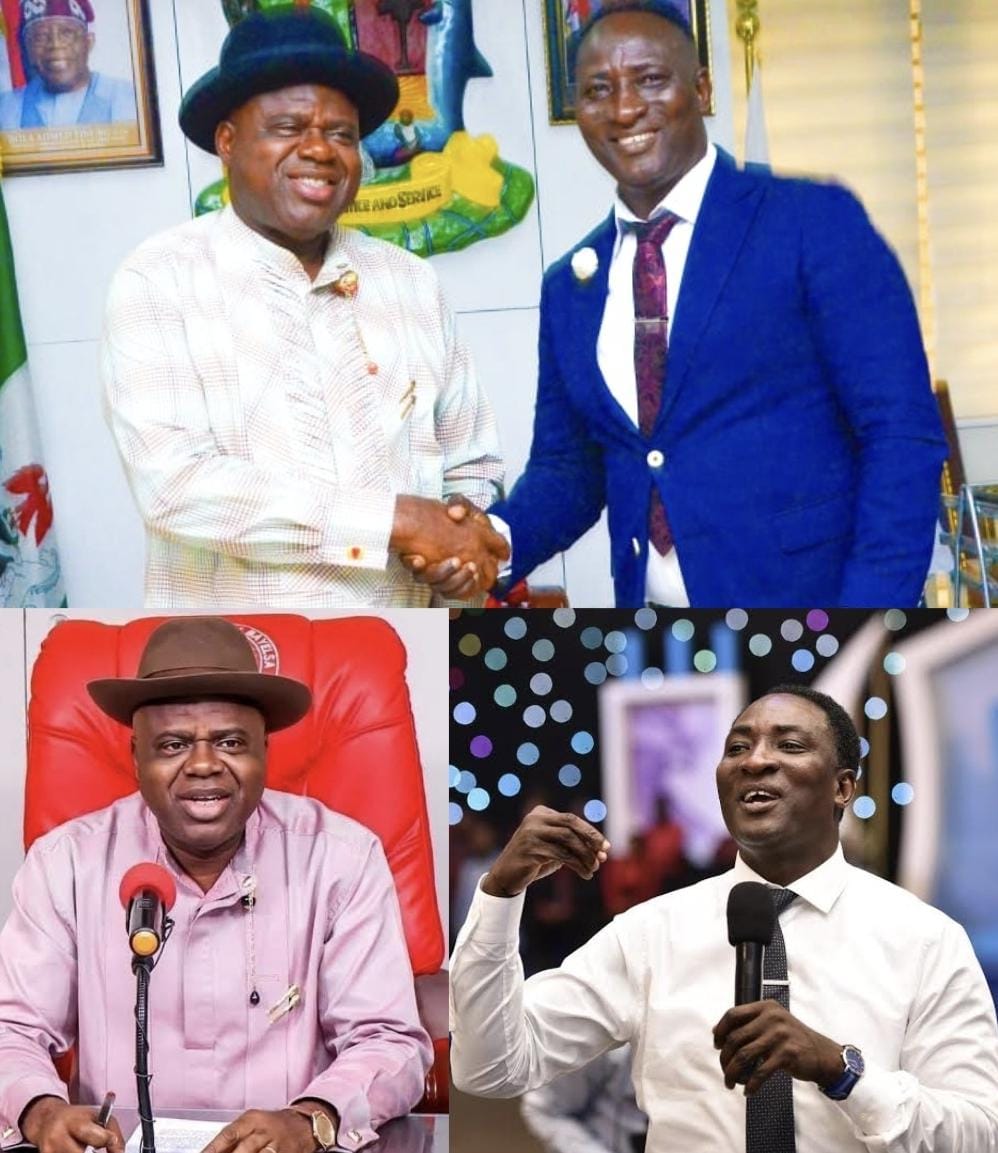
Breaking NEWS:
Yenegoa International Stadium Packed as worshipers Witness Unprecedented Spiritual Display through Prophet Jeremiah Omoto Fufeyin Ministry
Billionaire Prophet Jeremiah Fufeyin packs out Yenegoa International Stadium with Multitudes, Miracle, and Healing as he is warmly welcomed by the Bayelsa State Governor, Dr Douye Diri in
Yenegoa, Bayelsa State
In a remarkable display of faith, the renowned Billionaire Prophet Jeremiah Fufeyin astounded the bayelsan populace as he filled the Yenegoa International Stadium to beyond capacity during the weekend.
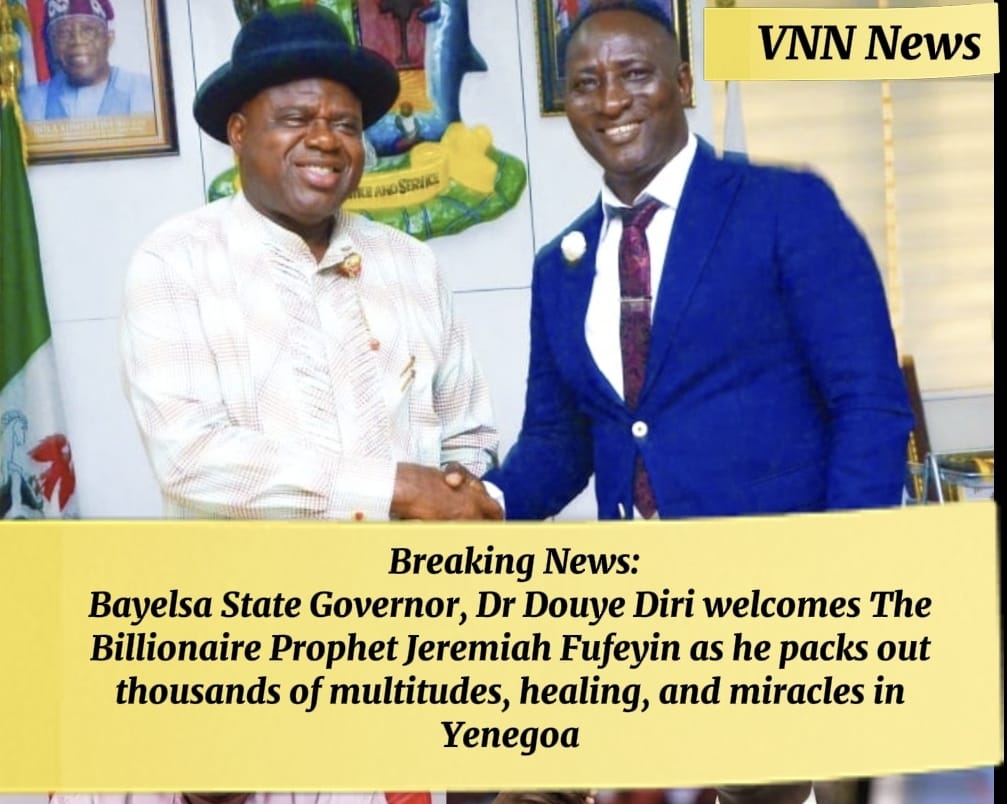

The atmosphere was electric with anticipation and excitement as multitudes gathered to witness the miraculous and experience divine healing.
As the governor of Bayelsa State, Dr Douye Diri, welcomed the esteemed prophet, the crowd erupted in thunderous applause and cheers. The presidential-style welcome was a testament to the immense impact and influential status of Prophet Jeremiah Fufeyin in the religious landscape.
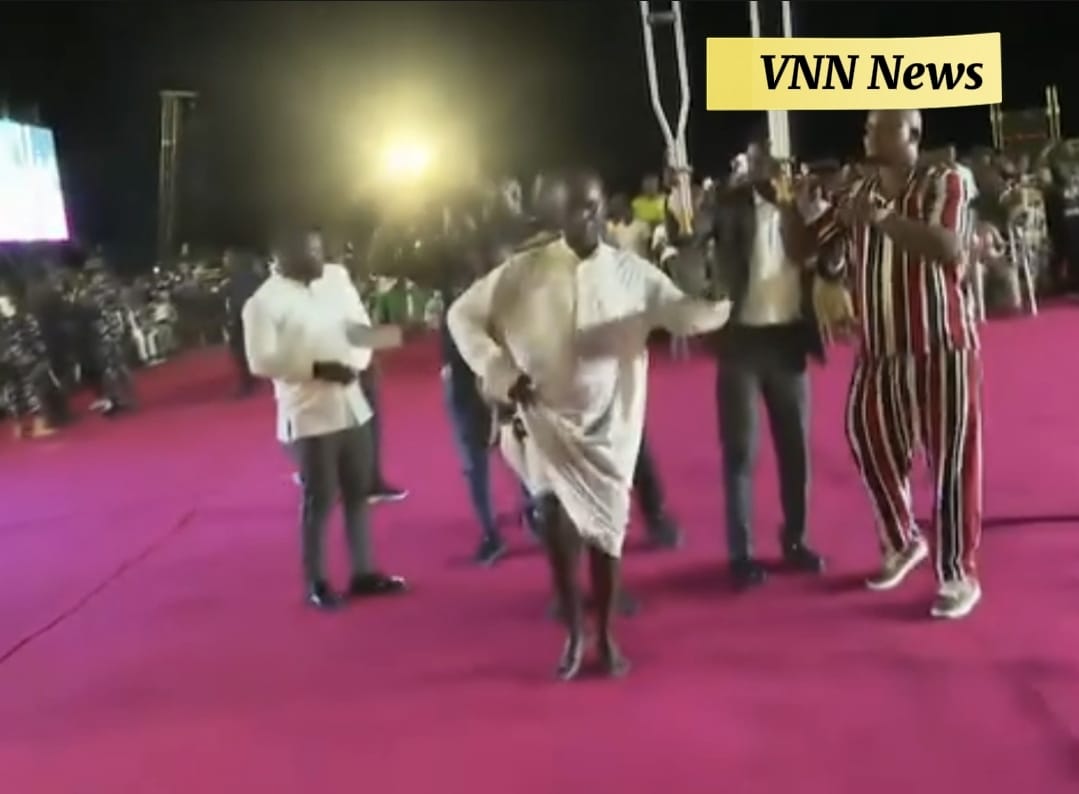

Watch Video:
Following his arrival, Prophet Jeremiah Fufeyin wasted no time in demonstrating the supernatural power at work within him. Countless individuals who had come in search of healing and miracles were not disappointed as they experienced the divine touch of the prophet. The stadium reverberated with joyous cries and testimonies of healing as deaf ears were opened, the blind regained their sight, and the lame began to walk.
Advertisement
Advertisement
Loading...
 Ndoma
Ndoma News_Naija
News_Naija Remy
Remy Gale2626
Gale2626 Mountainous
Mountainous Gistlegit
Gistlegit